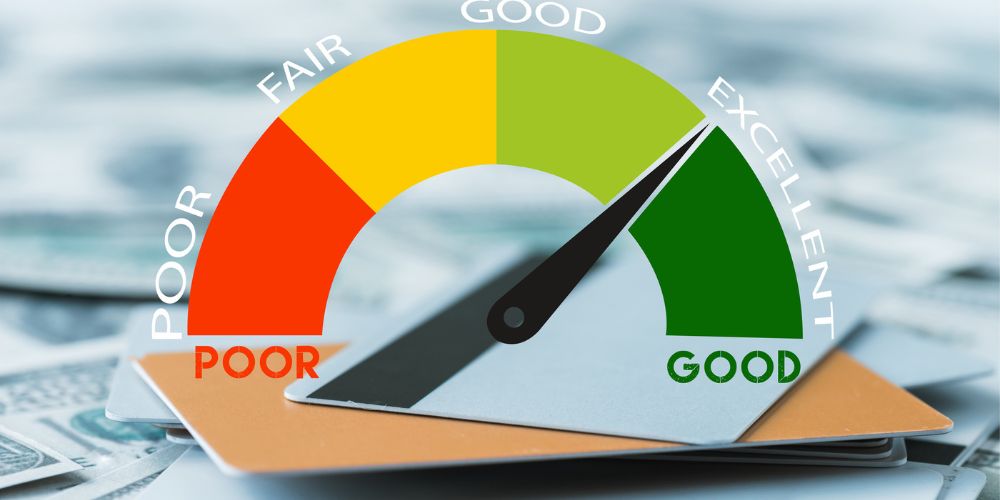When it comes to obtaining a mortgage loan, your credit score plays a vital role in determining your eligibility and the terms of your loan.
However, a lesser-known aspect is the credit bureau that mortgage lenders rely on to assess your creditworthiness.
In this article, we will explore what credit bureau does a mortgage lender use.
By understanding this, you can gain valuable insights into how your credit history is evaluated and take steps to improve your chances of securing a favorable mortgage.
What Credit Bureau Does a Mortgage Lender use?
Understanding FICO Scores
Before we delve into the credit bureaus preferred by mortgage lenders, it’s important to understand FICO scores.
The Fair Isaac Corporation (FICO) developed the FICO score model, which is widely used in the lending industry.
FICO scores are a numerical representation of an individual’s creditworthiness, ranging from 300 to 850, with higher scores indicating better creditworthiness.
Compared to other credit scoring models, such as VantageScore, FICO scores hold significant weight in the mortgage lending process.
Lenders consider FICO scores because they provide a consistent and standardized way to evaluate credit risk.

Role of Credit Bureaus in Mortgage Lending
Three major credit bureaus—Experian, Equifax, and TransUnion—compile and maintain credit reports on consumers.
These credit reports serve as the foundation for calculating credit scores. Each credit bureau uses its own credit scoring model based on the data it receives.
Experian, for instance, developed FICO Score 2, which is widely used in mortgage lending decisions.
TransUnion utilizes FICO Score 4, while Equifax relies on FICO Score 5. These specific FICO scoring models are preferred by mortgage lenders due to their relevance and accuracy in assessing creditworthiness.
Most Commonly Used FICO Scores by Mortgage Lenders
FICO Score 2: Experian’s Scoring Model
Experian’s FICO Score 2 is one of the credit scores most frequently used by mortgage lenders.
This scoring model emphasizes how you manage your credit, including your payment history, credit utilization, length of credit history, and types of credit used.
FICO Score 4: TransUnion’s Scoring Model
TransUnion’s FICO Score 4 is designed to assess credit risk specifically for mortgage lending.
This score takes into account factors such as your payment history, credit utilization, derogatory marks, and the age of your credit accounts.
FICO Score 5: Equifax’s Scoring Model
Equifax utilizes FICO Score 5 to evaluate creditworthiness for mortgage lending purposes.
This score focuses on similar factors as the other scoring models, including your payment history, credit utilization, length of credit history, and types of credit you have.
Factors Influencing Lender’s Choice of Credit Bureau
Several factors influence a mortgage lender’s choice of credit bureau when assessing a borrower’s creditworthiness:
Data Accuracy and Coverage
Lenders consider the accuracy and coverage of credit bureaus when making lending decisions.
If one credit bureau provides more comprehensive and accurate data, lenders may rely more heavily on that particular bureau’s information.
Specific Mortgage Programs and Lender Preferences
Different mortgage programs may have specific requirements or preferences regarding credit bureaus.
Some lenders may have established relationships with particular credit bureaus, leading them to prefer using those bureaus’ scoring models.
Regional Differences
Lenders may take into account regional differences or local practices when choosing credit bureaus.
They understand that credit reporting practices can vary geographically, leading them to rely on specific credit bureaus that are more in tune with local credit reporting practices.

Different Credit Scoring Models
While FICO Scores 2, 4, and 5 are commonly used by mortgage lenders, it’s important to note that different lending institutions may use variations of these scoring models.
For example, some lenders may use modified versions of FICO scores customized to their specific lending criteria.
These variations could include adjustments to weight certain factors more heavily or consider additional data points beyond the standard FICO scoring models.
Additionally, the use of non-FICO credit scoring models is also a possibility. Some lenders may rely on alternative credit scoring models, such as VantageScore, or their in-house proprietary scoring models, to assess creditworthiness.
However, FICO scores remain the most widely used and recognized scores in the mortgage lending industry.
The Role of Credit Inquiries
Credit inquiries can also impact your creditworthiness when applying for a mortgage. There are two types of credit inquiries: hard inquiries and soft inquiries.
Hard inquiries occur when you apply for credit, such as a mortgage loan. Soft inquiries, on the other hand, occur when you check your own credit or when a lender preapproves you for a loan without your request.
When applying for a mortgage, the lender will typically perform a hard inquiry, which can temporarily lower your credit score by a few points.
However, multiple inquiries for the same type of credit within a short period, such as seeking mortgage preapprovals from multiple lenders, generally count as a single inquiry when calculating your credit score.
This allows borrowers to shop around for the best mortgage rates and terms without excessively impacting their credit scores.
Mortgage lenders typically consider the number and recency of credit inquiries as part of their lending decision process.
Too many recent credit inquiries can raise concerns about your financial capacity and perceived risk.
Credit Bureaus and Your Rights
As a consumer, it’s essential to be aware of your rights when it comes to credit bureaus. Under the Fair Credit Reporting Act (FCRA), you have the right to:
- Obtain a free copy of your credit report from each of the three major credit bureaus once every 12 months.
- Dispute any inaccuracies or incomplete information on your credit report.
- Have outdated or negative information removed from your report after a certain period.
- Add a personal statement to your credit report explaining any extenuating circumstances that may have affected your creditworthiness.
Monitoring your credit reports regularly allows you to spot errors or fraudulent activity and take appropriate action to rectify any issues.
Improving Your Creditworthiness for Mortgage Lending
To increase your chances of securing a favorable mortgage loan, consider implementing the following strategies to improve your creditworthiness:
- Pay your bills on time: Consistently making timely payments demonstrates responsible financial behavior and positively impacts your credit history.
- Manage your credit utilization ratio: Keep your credit card balances low and avoid maxing out your credit limits. Ideally, aim to keep your credit utilization below 30% to maintain a healthy ratio.
- Avoid unnecessary credit inquiries: Minimize the number of credit applications within a short period to prevent potential negative impacts on your credit score.
- Maintain a mix of credit accounts: Having a mix of credit types, such as credit cards, loans, and mortgages, can showcase your ability to manage different types of credit.
- Monitor your credit reports regularly: Review your credit reports from all three major credit bureaus annually, checking for inaccuracies and addressing any issues promptly.
Conclusion
Understanding the credit bureau preferences of mortgage lenders is essential for prospective homebuyers.
By knowing which credit bureau’s scoring model holds the most weight, you can take proactive steps to improve your creditworthiness.
Keep in mind that while FICO scores are crucial, lenders may consider other factors when making their final lending decisions.
By maintaining a healthy credit history and diligently managing your finances, you can increase your chances of securing a favorable mortgage loan.
Remember that your creditworthiness is not limited to a single credit bureau. It’s essential to maintain good credit across all three bureaus, as mortgage lenders may consider information from each bureau during their evaluation process.
By being proactive and taking steps to improve your creditworthiness, you can position yourself for success when applying for a mortgage.


 Tags:
Tags:










